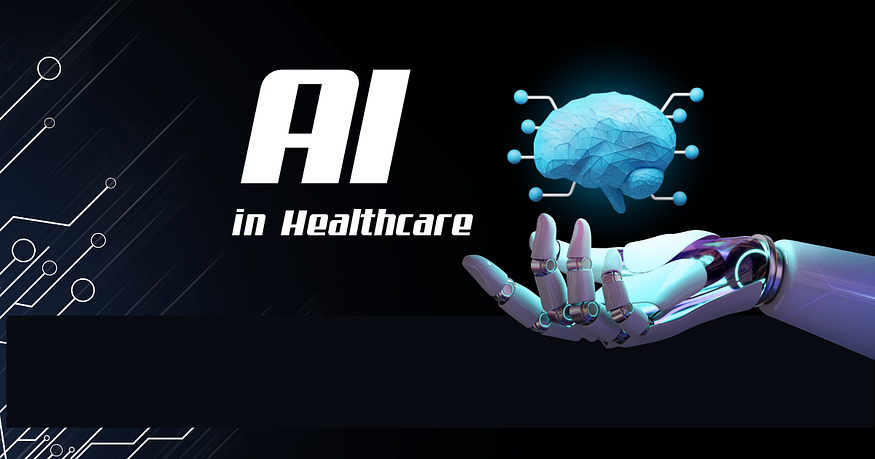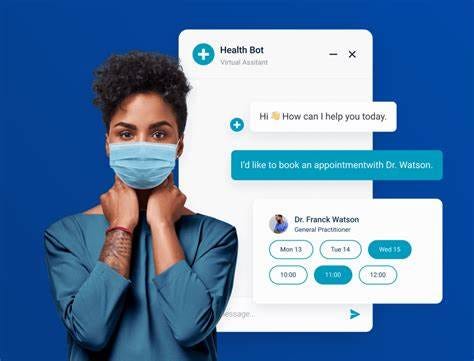Transformative Power of AI in Healthcare
AI is transforming the healthcare industry, reshaping medical treatments, and improving patient outcomes.
The Transformative Power of AI in Healthcare: Revolutionizing Medical Treatments
Exploring How Artificial Intelligence Is Revolutionizing Diagnostics, Personalized Medicine, and Patient Care
 |
| AI in Healthcare |
Artificial Intelligence (AI) is no longer just a buzzword — it’s a revolutionary force reshaping various industries, and healthcare is one of the most impacted fields.
From predictive analytics and personalized treatment plans to the automation of routine tasks, AI is transforming the way we approach medical treatments.
 |
| AI in Healthcare by AI Insight |
This evolution is bringing efficiency, accuracy, and hope to healthcare professionals and patients worldwide. In this article, we will explore how AI is making its mark in healthcare, its benefits, and its challenges ahead.
The Role of AI in Diagnostics
One of the most critical areas where AI is making a substantial impact is in diagnostics.
Early and accurate diagnosis can make a significant difference in patient outcomes, especially in diseases like cancer, where treatment efficacy is often time-sensitive.
AI-powered tools can analyze medical images like X-rays, MRIs, and CT scans with a precision that often surpasses human capabilities.
Dr. Andrew Ng, a pioneer in AI technology, once said, “AI will likely be the best tool for augmenting human capabilities, especially in the diagnosis of complex diseases.”
AI algorithms can scan through thousands of images in seconds, identifying patterns that might be invisible to the naked eye, thereby reducing the chances of misdiagnosis and improving the speed at which patients receive treatment.
AI in Personalized Medicine
Personalized medicine is another area where AI is creating ripples. Traditional treatment approaches often involve a one-size-fits-all methodology, which can be inefficient or even harmful for some patients. AI allows for a more tailored approach to healthcare by analyzing a patient’s genetic information, lifestyle factors, and medical history to predict how they might respond to specific treatments.
For instance, AI algorithms can help identify which cancer therapies are likely to work best for a particular individual.
By using machine learning to analyze the unique genetic mutations in a patient’s tumor, doctors can design a treatment plan that targets those specific mutations.
This not only increases the likelihood of success but also reduces the side effects associated with traditional treatments.
AI-Driven Drug Discovery
The process of developing new drugs is both time-consuming and expensive. On average, it takes about 10 to 15 years and costs billions of dollars to bring a new drug to market.
AI is poised to revolutionize this process by speeding up drug discovery and reducing costs.
Through deep learning and neural networks, AI can analyze chemical compounds and predict their effectiveness against specific diseases, drastically cutting down the research and development time.
 |
| AI in Healthcare |
According to a study published in Nature, AI has the potential to reduce the time required for drug discovery by up to 50%.
This acceleration could be lifesaving, especially for conditions like neurodegenerative diseases and rare genetic disorders where time is of the essence.
Furthermore, AI can help identify potential side effects of drugs before they enter clinical trials, thereby increasing their safety profile.
Virtual Health Assistants and Chatbots
AI is also enhancing patient interaction through virtual health assistants and chatbots.
These AI-driven tools can handle routine inquiries, book appointments, remind patients to take their medication, and even offer mental health support.

For example, chatbots like Woebot use natural language processing to have conversations with users, providing them with cognitive-behavioral therapy techniques to manage their mental health.
Virtual assistants are particularly valuable in remote areas where access to healthcare providers is limited.
By providing round-the-clock support, they ensure that patients can receive guidance and information when they need it most.
This technology not only improves patient engagement but also reduces the workload on healthcare professionals, allowing them to focus on more critical cases.
